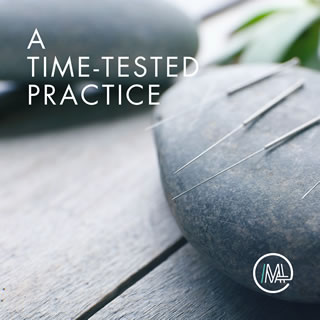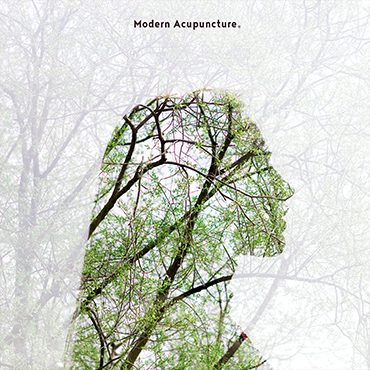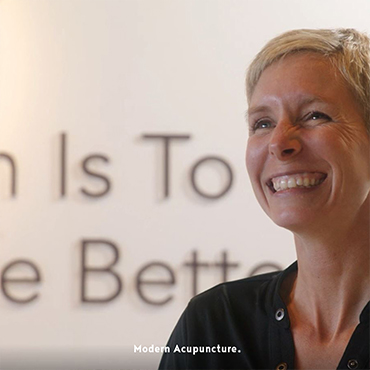Pain Awareness Month - How Acupuncture Reduces Chronic Pain

As September is Pain Awareness Month, it is important to be aware of and examine the many benefits people can gain from using acupuncture when treating chronic pain. Not only does acupuncture treat pain, but it also alleviates depression and improves overall health when a treatment plan is followed. The recent article, “Acupuncture Reduces Pain, Alleviates Depression” by the Healthcare Medicine Institute (HealthCMi) examines these benefits. Additionally, a recent study done by the Memorial Sloan Kettering Cancer Center (New York, USA) and the University of York (York, UK), shows that acupuncture is a more efficient remedy over common care for treating chronic pain including back, neck, and shoulder pain as well as osteoarthritis and headaches.
With drug overdoses being one of the top ten leading causes of death in the U.S.,it is evident that opiod addiction and abuse is an epidemic. Safer alternatives are greatly needed. Traditional Chinese medicine has been validated by thousands of years of practice, treating many people for a variety of ailments. However, there is still a lack of understanding of how acupuncture works, leading people to be very uncertain about the medicine and its different forms of treatment.
The study below includes a sample size of approximately 18,000 patients. Researchers determined that acupuncture effectively decreases symptoms involving low back pain, knee osteoarthritis, headaches, and migraines. Additionally, they found that acupuncture is better than standard medical care in relieving these symptoms and also more cost-effective.
Treating Chronic Pain
Acupuncture is recognized by the World Health Organization as a safe, effective and natural treatment for injuries, orthopedic conditions and acute and chronic pain. The most common reason people seek out acupuncture is due to the pain they are experiencing - musculoskeletal issues are most common, followed by headaches and migraines. For symptoms such as osteoarthritis of the knee that are non-curable, patients tend to look for alternative treatments that are non-pharmacological for pain relief.
By inserting a hair-thin needle into a pain point or congested area, it allows the muscles to relax and repair itself. The process of acupuncture stimulates the release of endogenous opioids and other neurotransmitters that are pain relieving chemicals in your body. Naturally, this shows that acupuncture is used as a tool to assist the body in self-healing for chronic pain, however, without the stimulation of acupuncture, this process would not work.
Alleviates Other Illnesses
Acupuncture has not only been studied to treat chronic pain but for other ailments as well such as depression. Depression is a chronic illness that affects a large portion of the population around the world. According to Acupuncture Reduces Pain, Alleviates Depression, “depression involves more than just everyday mood fluctuations; it also involves feelings of severe sadness, anxiety, hopelessness and worthlessness.” Standard care would be to prescribe antidepressants to patients to help with the illness, however, it's not guaranteed that they will help. Also, patients risk becoming dependent on the medicine. Counseling is recommended as an alternative therapy option to antidepressants, however, it is a short-term remedy, not long-term.
The National Institute for Health Research has conducted the largest study of acupuncture for depression to date, including 755 patients with 266 in the acupuncture group and 231 in the counseling group. The point of this study was to compare the two alternatives with patients that experience only comorbid pain and those with depression only. Patients with comorbid pain experience low energy, sleep problems, and fatigue. Those who were experiencing depression only often feel low self-esteem due to stressful environments.
Within three months, researchers found that patients receiving acupuncture compared to standard care were more likely to confess either partial or complete relief from their depression or anxiety, making both alternatives effective, stated Acupuncture Reduces Pain, Alleviates Depression. Considering acupuncture is performed in places that have a direct focus on the symptoms the patient is experiencing, this allows for the patient’s physical symptoms to decrease. Additionally, many of the patient’s use of antidepressants also decreased. A National Institute for Health Research study found that “among all patients, the majority (68.7%) were taking antidepressants at baseline and prescribed antidepressant utilisation decreased steadily by an average of 12% over the 12-month study period, a rate comparable between trial arms.”
Cost Efficiency
For people to even consider a different treatment option from what they are used to, it must be cost efficient. According to Acupuncture Reduces Pain, Alleviates Depression, “the results of network meta-analysis show acupuncture to be more effective than usual care with respect to reducing pain and improving HRQoL (health-related quality of life).” Additionally, “acupuncture has close to a 100% probability of being cost-effective in patients with osteoarthritis of the knee and musculoskeletal pain types, and an 86% probability of being cost-effective for the headache/migraine indication…”
Several studies, including this one, are now validating the claim that acupuncture treats chronic pain and the other ailments that people experience every day. Modern Acupuncture offers an enhanced experience that combines a healing form that has been validated by thousands of years with a modern, clean and spa-like environment. This experience at Modern Acupuncture does not require the removal of any clothing or needling at the site of the pain, yet accesses full-body health. A licensed acupuncturist is available to answer any questions regarding symptoms that acupuncture treats, the process of acupuncture, the benefits, the science behind it and more.
[Back to main news page]



